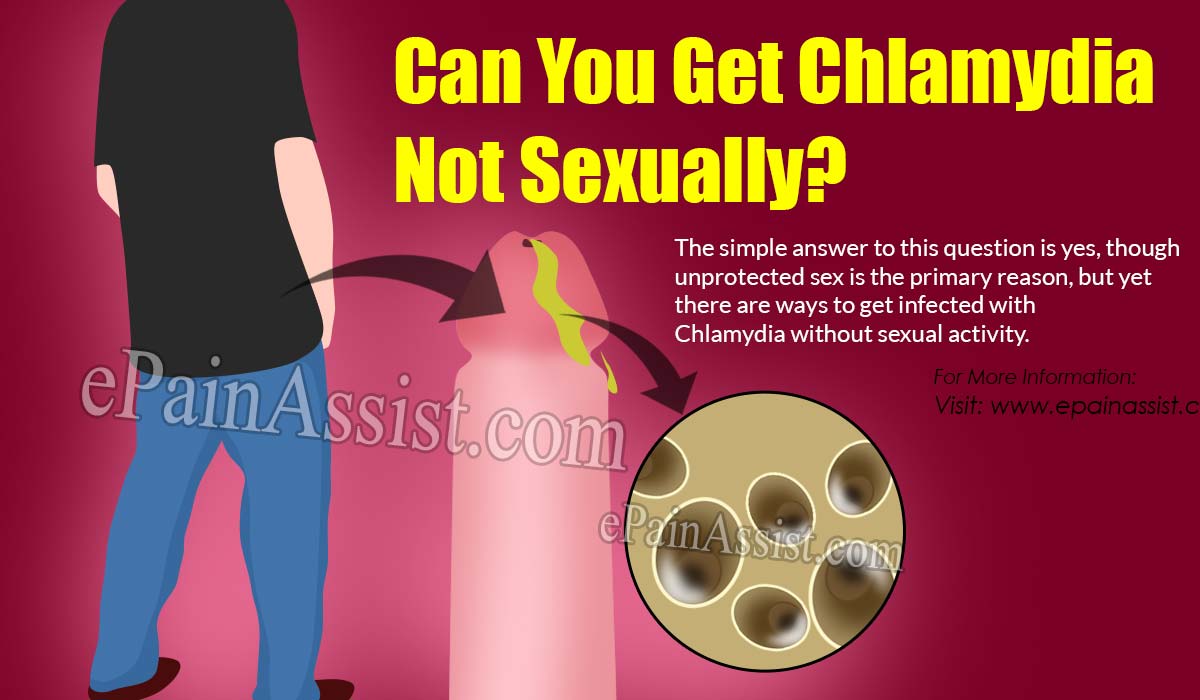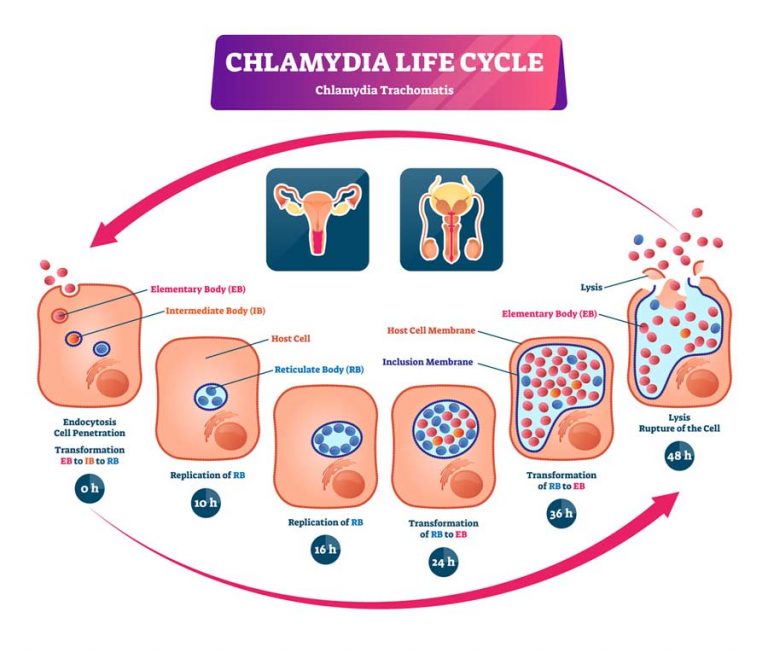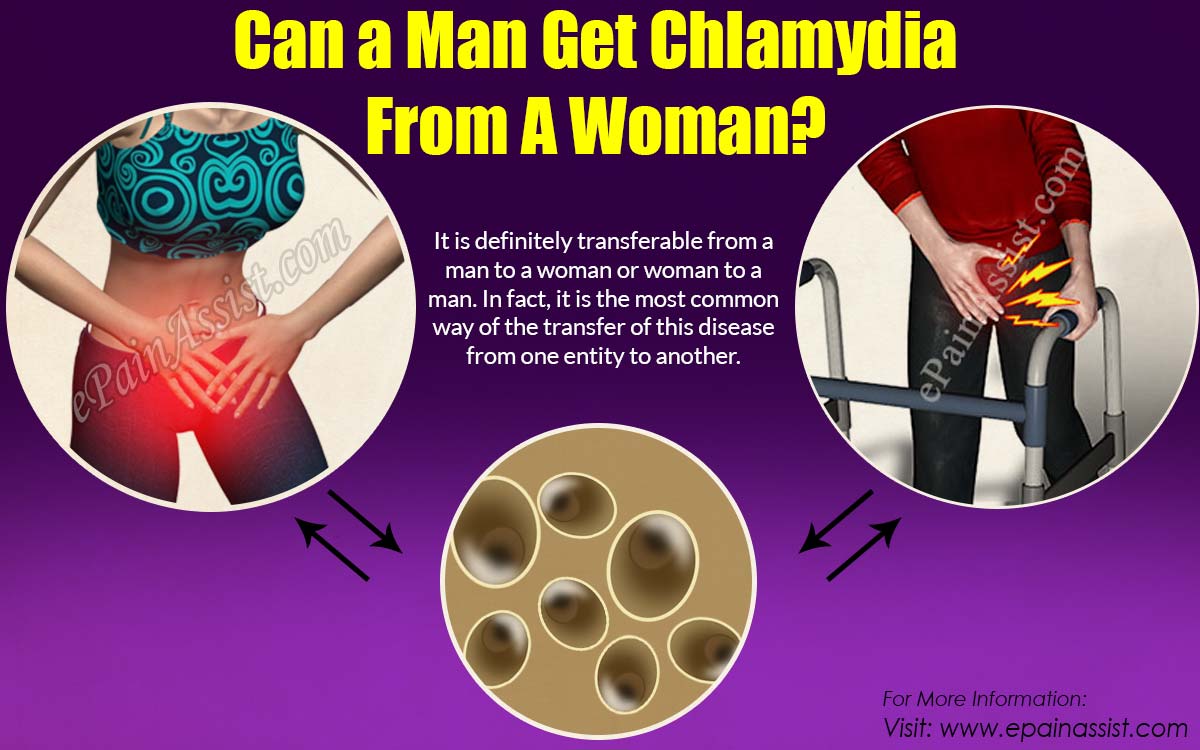What Can Be Done To Prevent The Spread Of Gonorrhea
Sexual relations should be approached responsibly.
- Limit the number of your sex partners.
- Use a male or female condom.
- If you think you are infected, avoid any sexual contact and visit a local sexually transmitted disease clinic, hospital or your doctor.
- Notify all sexual contacts immediately so that they can be examined and treated by a health care provider.
Complications From Chlamydia And Gonorrhea
Because these two diseases often have no symptoms, some people go untreated.
Even with those who have symptoms, stigma, access, or other reasons get in the way of getting medical attention.
Not receiving prompt and proper treatment can create serious health problems.
For women, chlamydia and gonorrhea that goes untreated can spread through your uterus to your fallopian tubes.
Fallopian tubes connect the ovaries to the uterus and transport fertilized eggs during pregnancy. If untreated bacteria that cause gonorrhea and chlamydia spread to this area, the result is pelvic inflammatory disease , affecting around 5% of women in the US.
Pelvic inflammatory disease, similar to chlamydia and gonorrhea, can have no symptoms or just some pelvic or abdominal pain initially.
Unfortunately, PID can do permanent damage to a womens reproductive system, including:
For men, gonorrhea and chlamydia can also lead to serious health problems.
It is uncommon for either to cause infertility in men, but sometimes the infection can spread past the penis causing fever or pain.
One difference is that chlamydia can also spread to the urethra, causing Non-Gonococcal urethritis, which is an infection of the tube that carries urine resulting in inflammation, pain, and fever.
This cannot be caused by the bacteria that causes gonorrhea. However, for both diseases, it is possible for either to cause:
For both women and men, chlamydia and gonorrhea can develop into a form of arthritis:
How Do You Prevent Chlamydia
Using a new male or female condom or dental dam every time you have sex is the best way to protect against chlamydia.
Chlamydia can be passed on by sharing sex toys. Always cover sex toys with a new condom and wash them after use to reduce your risk of getting chlamydia and other STIs.
Its important to regularly test for chlamydia, even if you dont have any symptoms, especially if youve had multiple sexual partners.
The contraceptive pill and other types of contraception wont prevent you getting chlamydia, and neither will PrEP.
Read Also: Can I Get Treated For Chlamydia Without Being Tested
Where Can I Get Tested For Gonorrhea
You can get tested for gonorrhea and other STDs at your doctors office, a community health clinic, the health department, or your local Planned Parenthood health center. In some states, you can do an online visit and take a gonorrhea test at home.
STD testing isnt usually part of your regular checkup or gynecologist exam you have to ask for it. Be honest with your nurse or doctor so they can help you figure out which tests are best for you. Dont be embarrassed: your doctor is there to help you, not to judge you.
How Is Each Condition Transmitted

Both STIs are caused by bacterial infections that are transmitted through unprotected sexual contact, meaning sex without using a condom, dental dam, or another protective barrier between you and your partner during vaginal, anal, or oral sex.
Its also possible to contract the infection through sexual contact that doesnt involve penetration. For example, if your genitals come into contact with the genitals of someone whos contracted the infection, its possible to develop the condition.
Both STIs can also be contracted through protected sex with a condom or other barrier if you dont use protection properly, or if the barrier breaks.
Either STI can be contracted even if you arent showing visible symptoms. Both STIs can also be transmitted to a child at birth if the mother has either condition.
Youre at increased risk for developing these and other STIs if you:
- have multiple sexual partners at one time
- dont properly use protection, such as condoms, female condoms, or dental dams
- regularly use douches which can irritate your vagina, killing healthy vaginal bacteria
- have contracted an STI before
Sexual assault can also increase your risk of both chlamydia or gonorrhea.
Both STIs can be diagnosed using similar diagnostic methods. Your doctor may use one or more of these tests to ensure that the diagnosis is accurate and that the right treatment is given:
Recommended Reading: My Partner Tested Positive For Chlamydia But I Didn T
How To Stay Safe
STIs are usually spread by having sex – digital, vaginal, oral, or anal sex. Some can be spread via blood or blood products and some and can be passed from mother to child during pregnancy and childbirth.
So, what can you do to stay safe?
When used correctly, condoms offer one of the most effective methods of protection against STIs, including HIV. Female condoms are also effective and safe.
We are often not aware that they may have an STI.
Any sexually active person can catch an STI, those who change partners frequently or do not use condoms are at higher risk. Previous successful treatment for an STI doesn’t make you immune to catching the infection again.
How Likely Is Recurrence
We dont know how likely recurrence is in oral gonorrhea, specifically.
We do know that recurrence for other types of gonorrhea is high, affecting anywhere from 3.6 percent to 11 percent of people previously treated. Kissinger PJ, et al. . Early repeat Chlamydia trachomatis and Neisseria gonorrhoeae infections among heterosexual men. DOI:
Retesting is recommended three to six months after treatment, even if you and your partner have successfully completed treatment and are symptom-free. Mayor MT, et al. . Diagnosis and management of gonococcal infections.
Don’t Miss: What Medication Treats Chlamydia And Gonorrhea
How Soon Do Symptoms Appear
In males, symptoms usually appear two to seven days after infection but it can take as long as 30 days for symptoms to begin. Often, there are no symptoms for people infected with gonorrhea 10 to 15 percent of men and about 80 percent of women may have no symptoms. People with no symptoms are at risk for developing complications to gonorrhea. These people also spread this infection unknowingly.
Who Should Be Tested For Chlamydia
You should go to your health provider for a test if you have symptoms of chlamydia, or if you have a partner who has a sexually transmitted disease. Pregnant women should get a test when they go to their first prenatal visit.
People at higher risk should get checked for chlamydia every year:
- Sexually active women 25 and younger
- Older women who have new or multiple sex partners, or a sex partner who has a sexually transmitted disease
- Men who have sex with men
Also Check: Are There Other Ways To Get Chlamydia
What Else Should I Ask My Healthcare Provider
If you have gonorrhea, ask your healthcare provider:
- What medication is best for me?
- How long do I need to take the medication?
- When can I resume having sex?
- How can I avoid getting gonorrhea again?
- What else do I need to know to stay safe?
A note from Cleveland Clinic
Gonorrhea is a common STD. Gonorrhea symptoms include pain and discharge from the penis or vagina. However, many people do not have symptoms. If you think you have gonorrhea, or you had unprotected sex, talk to your healthcare provider about getting tested. With prompt treatment, usually antibiotics, you can cure gonorrhea and prevent long-term health problems. The best way to avoid gonorrhea is to use a condom or dental dam during any sexual activity.
Last reviewed by a Cleveland Clinic medical professional on 11/25/2020.
References
How Is Chlamydia Treated
Chlamydia can be easily treated with a short course of antibiotics. You may be able to take all the antibiotics in one day, or over a week, depending on the type of treatment you are prescribed.
Its important to not have sex until you and your current sexual partner/s have finished treatment. If youve had the one-day course of treatment, you should avoid having sex for seven days afterwards. Ask your healthcare professional when its safe to have sex again.
Remember that if youve been treated for chlamydia you are not immune and you can get infected again.
Also Check: What Medicine Is Used To Treat Gonorrhea And Chlamydia
Four Curable Sexually Transmitted Infections
Chlamydia, gonorrhoea, trichomoniasis, and syphilis are four potential outcomes of sex that wed all like to avoid. However, according to new global estimates, each day there are more than one million new cases of these sexually transmitted infections.
The worrying thing is, even though we have never known more about how to prevent these infections, rates of infection remain very high worldwide.
The good news is, these 4 infections are curable.
Donât Miss: Will Chlamydia Show Up In A Blood Test
How Are The Tests Done

To collect the body fluid the procedure differs in men and women:
- For men: The doctor will insert a swab into the opening of the rectum or the urethra to collect a sample of the body fluid. A sample from the urethra will have higher possibility of the bacteria only if the man has not urinated for more than 2 hours before taking the sample.
- For women: The doctor will ask the woman to remove her clothes waist down and drape a cloth over herself. The doctor will raise your feet and support them high on stirrups to enable her to get a better view of your genitals. Next, a lubricated speculum camera will be inserted in to the vagina to enable a better view of the cervix as the speculum spreads the vaginal walls gently apart. Samples are then collected with the help of a cotton swab. This might cause mild discomfort.
- For eyes: The doctor will gently brush the upper and lower eyelids gently with a swab to get some fluid from the eyes. This can be painful if the eyelids have sores on them.
Different tests are prescribed for different people according to the need. It is suggested to get oneself checked early to rule out any further complications and prevent spreading the disease to others.
Also Check: 2 Pill Treatment For Chlamydia
What Else Should I Do If I Have Gonorrhea
To stay safe and keep your sex partner or partners safe, you should:
- Tell anyone you had sex with in the last three months that you have gonorrhea. Its important to do this because gonorrhea may not cause any symptoms. Women especially may not have symptoms and wont know to get tested and treated.
- Wait a week after you finish your medication before resuming your sex life.
- Use condoms and dental dams when you have sex.
- Get tested for HIV and other STDs .
What Do I Need To Know If I Get Treated For Gonorrhea
If youre getting treated for gonorrhea:
-
Take all of your medicine the way your doctor tells you to, even if your symptoms go away sooner. The infection stays in your body until you totally finish the antibiotics.
-
Your partner should also get treated for gonorrhea so you dont re-infect each other or anyone else.
-
Dont have sex for 7 days. If you only have 1 dose of medication, wait until a week after you take it to have sex. If youre taking medicine for 7 days, dont have sex until youve finished all of your pills.
-
Get tested again in 3 months to make sure your infection is gone.
-
Dont share your medicine with anyone. Your doctor may give you a separate dose of antibiotics for your partner. Make sure you both take all of the medicine you get.
-
If you still have symptoms after you finish your treatment, call your doctor.
-
Even if you finish your treatment and the gonorrhea is totally gone, its possible to get infected with gonorrhea again. Gonorrhea isnt a one-time-only deal. So use condoms and get tested regularly.
Also Check: At Home Chlamydia Test And Treatment
What Happens During A Gonorrhea Test
Gonorrhea testing can be as easy as peeing in a cup. Your nurse or doctor may test any discharge that comes from your urethra, vagina, or anus. Sometimes theyll use a swab to take cell samples from your penis, cervix, urethra, anus, or throat. The samples are tested for gonorrhea bacteria.
Gonorrhea can have symptoms that look like other common STDs like chlamydia, so your nurse or doctor might test you for a few infections.
The idea of getting tested may seem scary, but try to relax. STD testing is a regular part of being a responsible adult and taking care of your health. The good news is gonorrhea is totally curable with medicine so the sooner you know you have it, the faster you can get rid of it.
How Long Can You Have Chlamydia Without Knowing Years Or Months
How long can you have chlamydia without knowing is a common question after an unprotected sexual contact.
What is chlamydia infection?
Chlamydia infection, caused by Chlamydia trachomatis, is a common sexually transmitted infection that affects both men and women. In the united stated, more than 1.4 million new cases of chlamydia are detected yearly.
Chlamydia can affect the eyes , the joints, the vagina, anus and the penis. It may sometimes cause infertility if left untreated in men and women.
In women, chlamydia infection can ascend up the genital tracts resulting to pelvic inflammatory disease with symptoms like fever, abdomen pain and difficulty conceiving.
Chlamydia trachomatis infection is transmitted through
- Unprotected anal intercourse
If youve had intercourse with these symptoms, then its likely you have chlamydia. You should inform your doctor ASAP or get a chlamydia test kit to detect chlamydia.
Recommended Reading: What Type Of Antibiotic Is Used To Treat Chlamydia
Can You Get An Std From A Swimming Pool
by ShawnPublished on May 19, 2021Updated on June 8, 2021
The sun is shining and the smell of barbecue fills the aira perfect day for swimmingand the last thing you want to worry about is whether you can get an STD from a swimming pool. There is a multitude of STD myths that circulate the internet and everyday conversation, to the point where it can be difficult sometimes to discern fact from fiction. But were here to set the record straight!
So, can you get an STD from a swimming pool? As always, if you should be experiencing symptoms, it is recommended that you visit your healthcare provider or local STD testing center to provide a solid diagnosis. But, by providing extra context to this question, we hope to relieve your mind of anxiety.
What Are The Signs Of Chlamydia Or Gonorrhea
Many people who have chlamydia or gonorrhea dont have any signs or symptoms. When there are symptoms, chlamydia and gonorrhea cause very similar things.
Women with symptoms may have:
- Abnormal discharge from the vagina
- Burning when they urinate
Men with symptoms may have:
- Abnormal discharge from the penis
- Burning when they urinate
- Painful or swollen testicles
Don’t Miss: How To Treat Gonorrhea And Chlamydia
Can Chlamydia Go Away And Come Back
If youve had unprotected intercourse, its likely you may not have chlamydia if your partner is not infected. If treated chlamydia can go away and not come back if you abstain or ensure protected sex.
However, dont assume chlamydia will go away without taking medications. You may not have symptoms immediately and may still have chlamydia long-term problems.
How Is Chlamydia Diagnosed

Your doctor will ask you questions about your past health and your sexual history, such as how many partners you have. You may also have a physical exam to look for signs of infection.
Several types of tests can be used to diagnose chlamydia. Most use a sample of urine or a swab from the cervix, vagina, or urethra.
Since chlamydia can cause serious problems but may not cause symptoms, its a good idea to get tested once a year if you are sexually active and in your mid-20s or younger. Local health departments and family planning clinics usually offer low-cost testing.
Don’t Miss: What Are The Symptoms Of Gonorrhea And Chlamydia
Is Mouthwash Enough Or Do You Really Need Antibiotics
Mouthwash has long been believed to be able to cure gonorrhea. Until fairly recently, there was no scientific evidence to back the claim.
Data collected from a 2016 randomized controlled trial and an in vitro study found that the mouthwash Listerine significantly reduced the amount of N. gonorrhoeae on the pharyngeal surface. Chow EPF, et al. . Antiseptic mouthwash against pharyngeal Neisseria gonorrhoeae: A randomized controlled trial and an in vitro study. DOI:
While this is certainly promising, more research is needed to assess this claim. A larger trial is currently underway.
Antibiotics are the only treatment thats proven to be effective.
If left untreated, oral gonorrhea can spread through your bloodstream to other parts of your body.
This can lead to systemic gonococcal infection, also known as disseminated gonococcal infection.
Systemic gonococcal infection is a serious condition that can cause joint pain and swelling and skin sores. It can also infect the heart.
Gonorrhea of the genitals, rectum, and urinary tract can cause other serious complications when left untreated.
Possible complications include:
With proper treatment, gonorrhea is curable.
However, new strains of antibiotic-resistant gonorrhea can be more difficult to treat.
The CDC recommends that anyone treated for oral gonorrhea return to their healthcare provider 14 days after treatment for a test-of-cure. Gonococcal infections. .